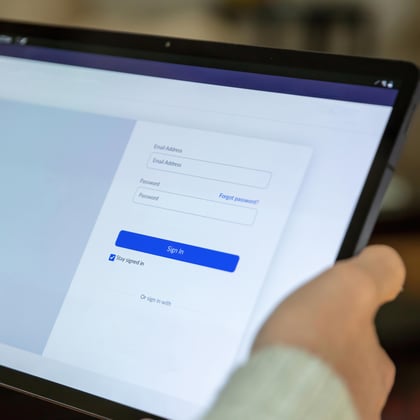One solution to manage both network access
and access to cloud services

It facilitates the federation and provisioning of cloud services, ensuring streamlined access while upholding robust authentication measures. This system introduces password-free two-factor authentication, combining enhanced security with user convenience. Using digital certificates, Soliton OneGate fortifies authentication measures, allowing for swift revocation when necessary.
With one identity, one point of management, one set of policies and one secure and strong authentication mechanism, all the identity management projects - single sign-on, provisioning, password management, directory consolidation, strong authentication, role management and audit/compliance - will be simplified.
Soliton OneGate offers a unified identity solution that simplifies user management across various systems. It streamlines single sign-on, provisioning, and password management through centralised management and consistent policies.
Strong authentication mechanisms enhance security, ensuring reliable access control. Users enjoy password-free entry to networks and cloud services, improving usability.



Without robust protection, especially in the case of Wi-Fi networks, vulnerabilities arise. Absence of strong authentication can lead to unauthorized access, and Wi-Fi signals are susceptible to interception, potentially granting unauthorized entry without detection.

Implementing strong authentication protocols and security measures for company networks, including Wi-Fi, effectively blocks unauthorized access, safeguarding seamless business operations.

Soliton OneGate, combined with on-premises NetAttest EPS, delivers robust network authentication minus the typical complexity. Soliton KeyManager aids in client certificate deployment.



The greater the number of devices on a network, the higher the potential risk of compromise. The initial device could serve as a stepping stone for lateral movement across networks. Moreover, malware spreads more readily, intensifying the extent of damage.

By implementing thorough network segmentation, the risk of device compromise and lateral movement is minimized. This strengthens network resilience and preserves integrity.

Soliton OneGate and NetAttest EPS simplify network segmentation through dynamic VLAN assignment for devices. If certificates aren't feasible, the integrated MAC-address support offers an alternative solution.



Setting up accounts individually for every cloud service poses challenges, including heightened complexity in credential management, increased security vulnerabilities from multiple passwords, and inefficiencies in access control across diverse platforms.

Employing federation and a single identity provider simplifies access management, strengthens security via centralized authentication, and increases user experience with seamless single sign-on capabilities. 
Soliton OneGate can provision chosen cloud services and establish federation with nearly all of them. A valid client certificate is a required authentication factor in this process.



Passwords pose challenges as they demand users to recall numerous intricate strings for various services. This can result in security risks if passwords are forgotten, reused, or managed incorrectly.

Implementing a solution that supports multiple passwordless login methods would not only enhance security but also significantly elevate the user experience.

Soliton OneGate supports the FIDO2 standard and an authenticator app, both of which enable the elimination of passwords from the login process. This can be achieved through alternatives like Windows Hello or a YubiKey.



When applications lack support for federated logins or their implementation is cost-prohibitive, the situation shifts to managing various standalone authentication processes. This amplifies access control complexity, heightens security vulnerabilities, and culminates in a fragmented and inefficient user experience.

Utilizing a password manager that automatically inserts intricate passwords on behalf of the user eliminates the requirement to memorize or manually handle individual passwords. This approach effectively boosts security.

If federated access isn't an option, the integrated password manager can furnish applications, both internal and cloud-based, with usernames and intricate passwords.
Scroll to top